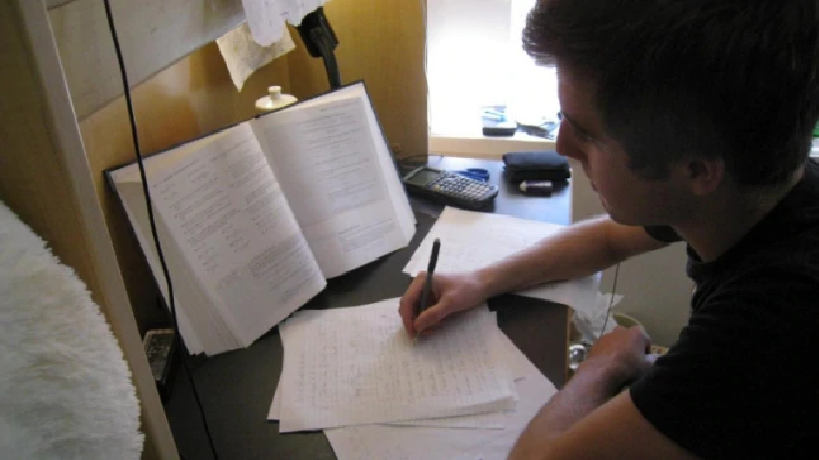Curated by the Knowledge Team of ICS Career GPS
Career

Career options in the field of science
Excerpts from article published by in India Today
Whenever one thinks about a secure career in the scientific field, generally only two options pop up in students’ minds- either becoming a Doctor or an Engineer. These two are the only stereotypical options that are looked upon as being the most dignified jobs in our society.
Let’s have a look at some uncommon jobs in the science field:
1. Blockchain Developer
New in the digital security sector, blockchain development is a technique to ensure the encryption and privacy of the user. Blockchain Engineers empower secure digital exchanges by making frameworks to record and store blockchain information in a manner that forestalls changes or hacks. They configure secure blockchain innovations, create application highlights and interfaces, and keep up customer and worker side applications.
2. Quantum Computer Programmer
When we talk of Quantum Mechanics, we are talking about a field that perplexed even Einstein, one of the Smartest Brains! But that doesn’t mean that it’s out of bounds. Trotting its way through many fields and changing the way such fields are comprehended, the applicability of this science has been implied in Information Technology as well. Scientists have developed Quantum Computers that employ Quantum Principles such as Entanglement to increase their computing potential.
3. Forensic Scientist
A Forensic Scientist is a person who uses scientific methods to underpin the evidence that is collected from the scene of a crime. A forensic scientist investigates and solves crimes as well as civil cases through an intrinsic study of the evidence collected and presents them in the court of law.
4. Biochemist
Biochemists study substance cycles and synthetic changes in living beings. Biochemists study DNA, proteins and cell parts. They also research how certain compound responses occur in cells and tissues, and notice and record the impacts of items in food added substances and medications.
5. Geologist
A geologist is a researcher who studies the solid, liquid and vaporous matter that form the Earth and other planets, along with the processes that lead them to their current state. Backgrounds in geology, physics, chemistry, biology, and other sciences are useful to pursue a career in this field.
6. Fermentation Scientist
Fermentation scientists are food researchers who study microorganisms in the aging cycle and how they identify with medicine and food. They imagine, plan, create and assess specialised and business projects in the fields of fermentation and microbiology.
7. Oceanographer
An Oceanographer is a scientist who studies the ocean along with its physical, chemical and biological components. He/she gives you a deep view of the life underwater and researches for the betterment of marine/aquatic life.
8. Biomedical Engineer
A Biomedical Engineer acts as a catalyst between medicine and information technology. Biomedical engineers design software, devices and instruments that can be used in the advancement of healthcare initiatives. They work towards enhancing the medical sciences by discovering new technologies and methods for monitoring and analysis purposes.
Education

Tips to ace both board and competitive exams
Excerpts from article published by the India Today Web Desk
Students juggling between preparation for Class 12 board exams and competitive exams often find themselves in a dilemma – struggling to balance the two. Achieving success in both requires building a strategical balance.
Here are a few strategies that students can follow to strike a balance between board and competitive exams:
1. Make a time table
Every student needs to follow a set study routine and revision plan. It is not advisable to make drastic changes in the pre-existing timetable just before exams as this can lead to difficulties in adjusting to the new regime. A systematic approach is a must to understand one’s weak areas and work to improve upon them.
2. Attend mock exams
In order to check their preparation levels, students are advised to take regular mock tests which also assist in identifying the weak areas and focus level. The structures of both boards and competitive exams are way different, with Boards following a traditional pattern, while entrance tests following the strategy of Multiple-Choice Questions. This practice will allow you to identify the basic and higher-level questions of a particular topic and the subject overall.
3. Learn the art of correlation
Overlapping of topics is one of the post probable outcome of simultaneous preparation. It is important to identify such topics and cover these at the earliest in order to have ample time for other important topics. This not only saves time but also gets better results.
4. Follow a stress-free pattern
A stress-free mind is the gateway to success, so students should refrain from getting stressed about the exams. Instead try to find out time for recreational activities and rejuvenate your mind. Meditation is one such practice that a student should inculcate in their daily routine.
5. Maintain a positive outlook
It is absolutely important to stay away from negative thoughts during the preparation. There are chances that people around you may feed in negative thoughts, inducing fear and panic. In such situations, believe in yourself and have faith in your efforts.
(Disclaimer: The opinions expressed in the article mentioned above are those of the author(s). They do not purport to reflect the opinions or views of ICS Career GPS or its staff.)
Like this post? For more such helpful articles, click on the button below and subscribe FREE to our blog.




